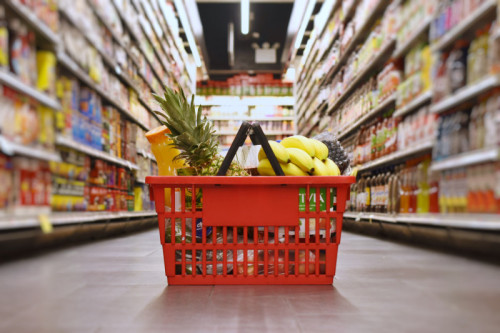
Supermarkets across the UK face significant challenges in maintaining stock levels during crises, such as the COVID-19 pandemic and extreme weather events. A new research initiative led by Dr. Arijit De from The University of Manchester aims to address these issues by enhancing supply chain resilience while promoting sustainability. The study introduces an innovative model designed to help retailers manage disruptions more effectively, reducing both costs and carbon emissions.
The research highlights the vulnerabilities within retail supply chains, which often rely on a combination of reliable but costly distribution centres and cheaper, more susceptible ones. When a vulnerable hub experiences disruptions, the repercussions can cascade throughout the network, leading to shortages, increased emergency transport expenses, and heightened carbon emissions. To counteract these issues, the research team developed a two-stage analytical model.
Initially, the team employed game theory to assess when warehouses would be inclined to cooperate and share stock during disruptions. Following this, they created an optimisation model capable of determining the most efficient methods for moving goods across the network. This approach not only aims to lower operational costs but also seeks to diminish fuel consumption and carbon emissions.
The model was validated using real-world data from a UK retailer. Results indicated that implementing smarter “goods sharing” strategies, where reliable warehouses temporarily support disrupted ones, can significantly reduce costs while meeting customer demand. When factoring in environmental considerations like fuel consumption and emissions, the potential savings are even more pronounced.
Dr. De noted, “Events like COVID, floods or strikes show just how vulnerable supply chains are to disruption. Our model gives companies a practical way to plan ahead, ensuring business continuity during crises while reducing their environmental impact. It’s about designing supply chains that are both resilient and sustainable.”
The study further revealed that implementing greener, optimised redistribution strategies could lead to fuel cost reductions of up to 30% during disruption scenarios compared to traditional methods. This translates to lower emissions, decreased costs for retailers, and ultimately, fewer shortages for consumers.
This research offers practical insights for UK supermarkets and other retailers navigating uncertain conditions. With climate change anticipated to exacerbate extreme weather events and global supply chains still under pressure, creating flexible networks capable of adapting to challenges will be essential.
The paper, titled “Proactive Logistics-Redistribution Strategic Planning in Response to Facility Disruptions under Contingencies,” was co-authored with colleagues from the Indian Institute of Management, National Taiwan University, and the University of Liverpool. It has been published in the European Journal of Operational Research. This collaborative effort underscores the importance of innovative approaches in building supply chain resilience and enhancing sustainability in the retail sector.






